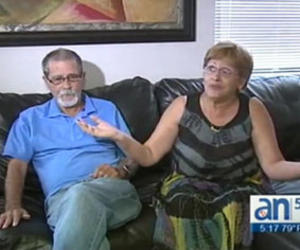Cuba’s ex-prisons chief — accused of human-rights abuses — is back in the U.S.
- Submitted by: lena campos
- Society
- 07 / 12 / 2013

A former Cuban prisons chief who was living in Miami and returned hastily to the island after he was accused of human-rights abuses is now back again in the United States, according to a knowledgeable source.
Interior Ministry Col. Crescencio Marino Rivero, 71, returned to Cuba in November after a half-dozen dissidents identified him as a former director of prisons in the central province of Villa Clara and accused him of abuses.
But a person with direct knowledge of the case Wednesday confirmed reports last week that Rivero had returned to somewhere in the United States. The person declined comment on Rivero’s location and all other issues, and asked for anonymity because the person was not authorized to speak publicly about the case.
Rivero’s wife, Juana Ferrer, who stayed in Miami when he returned to Cuba, insisted to an El Nuevo Herald reporter Wednesday that he remains in the island and accused the media of harassing her and her family.
The report of Rivero’s return drew grumbles from Miami immigration lawyers William Allen and Santiago Alpizar, whose complaints about his presence in South Florida last year eventually prompted an investigation by Immigration and Customs Enforcement (ICE).
“I am disappointed that it’s been months since this information has been made public, and in those months this guy returns to Cuba, returns to this country and nothing has happened,” Allen said.
He added that he was especially frustrated because the U.S. government at the same time has sought to deport other Cubans who, like Rivero and Ferrer, allegedly lied about their Communist Party membership and other issues when they applied for U.S. visas and residence.
The normal procedure for cases like Rivero and Ferro would be for ICE to submit the results of its investigation to the U.S. Attorney’s Office in Miami for a decision on whether to press criminal charges — most likely fraudulently obtaining visas and residence.
If the federal prosecutors decline, ICE can then start removal procedures — in essence, deportation cases in which an immigration judge rules on whether the defendants committed fraud. Deportations to Cuba are rare, so the defendants face detention in immigration lockups like the one on Krome Avenue or can voluntarily return to the island.
ICE and the U.S. Attorneys Office in Miami declined comment on the Rivero and Ferrer case.
Rivero retired in 1996 from the Interior Ministry, in charge of all prisons, and moved to Miami in 2010 with his wife, a former Interior Ministry passport officer who held at least the rank of captain. They moved in with a daughter, who has a young child.
A half-dozen former Cuban political prisoners have accused him of abusing them or ordering prison guards to abuse them when he was in charge of juvenile detention centers and later adult prisons in Villa Clara in the 1980s and 1990s.
Dissident Guillermo Fariñas, like Rivero a resident of the city of Santa Clara, alleged that an angry Rivero ripped out two intravenous feeding tubes from his arms when he was in a hospital in 1998 carrying out one of his many hunger strikes.
Farinas, winner of the European Parliament’s Sakharov prize for freedom of conscience, said Rivero also shouted that “dissidents don’t need intravenous liquids. They need to be killed.”
Federal investigators obtained copies of Rivero and Ferrer’s applications for visas and residence, under the Cuban Adjustment Act, in November, around the same time that Rivero went back to their home in Santa Clara.
Prosecuting Rivero for human rights abuses would be difficult, according to experts, but he and Ferrer could be put in removal procedures if they are found to have lied in their U.S. applications.
The forms ask if the applicants have ever worked in prisons, belonged to a Communist Party, received weapons training or served in a “paramilitary unit.” Interior Ministry officers hold military ranks and can carry weapons.
Rivero has denied the allegations of human rights abuses and branded his accusers as “liars.” But he appeared to acknowledge possible problems with his visa application when he spoke with a handful of Miami reporters in November.
When he applied for a U.S. visa, he said, “at that time I had been out of the Interior Ministry for 14 years. I didn’t give it any importance.”
Source Miami Herald
Comments